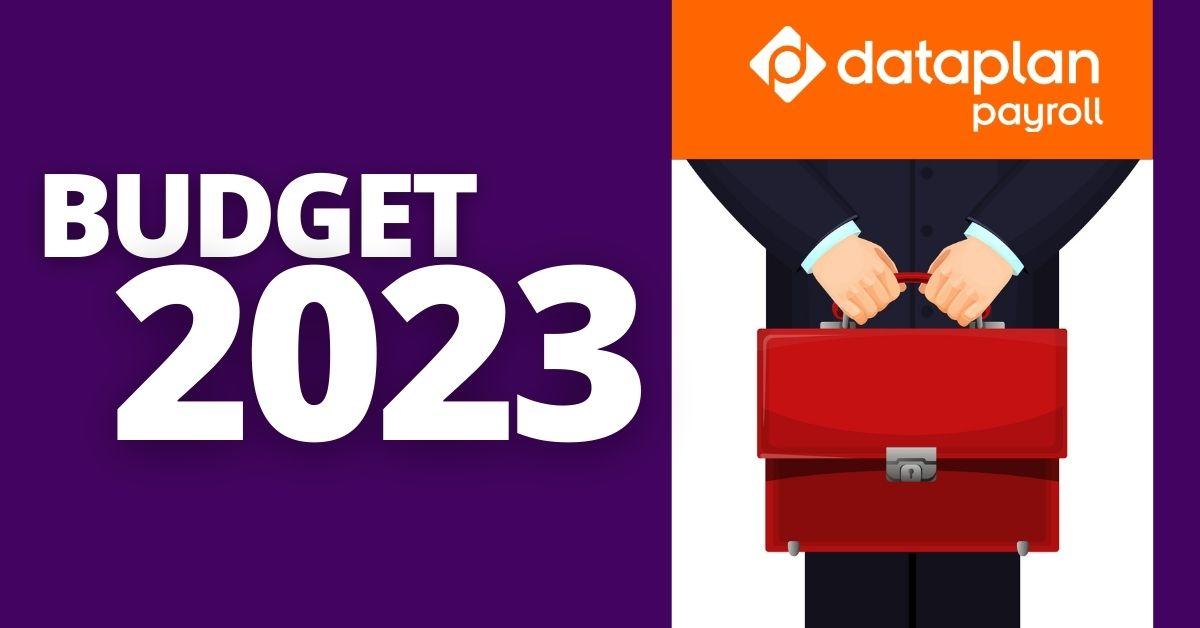
Set amid an economy that is still reeling from the cost-of-living crisis and multiple strikes amongst the public services, the Spring Budget ran along the theme of 'bringing stability'.
Many areas of the Budget were already known or expected, there was speculation about what the Chancellor would do to address the skills shortages and the support for people through the cost-of-living crisis.
Although there were no shocks affecting the payroll world (a great relief following the turmoil of the Autumn 22 fiscal statements). It is good practice for businesses to be aware of the changes that may affect their employees, especially those around tax, pensions and childcare, and can offer support where needed.
National Minimum Wage
New National Minimum Wage rate increases will come into effect on 1 April 2023;
- Over 23s from £9.50 to £10.42 an hour
- 21 – 22 year-olds from £9.18 to £10.18
- 10 – 20-year-olds from £6.83 to £7.49
- Under 18s from £4.81 to £5.28
- Apprentices from £4.81 to £5.28
Pension Allowances
Speculation regarding possible changes to tax-free pension allowances was rife in the run-up to the Budget, and the Chancellor's Budget announcement confirmed these rumours.
The pension annual tax-free allowance will be increased by a whopping 50% from £40,000 to £60,000, and the lifetime allowance will be abolished.
This measure will also ensure that each public sector pension scheme workforce (e.g. 1995, 2008 and 2015) is treated as one arrangement to calculate the pension input amount. This will come into effect from April 2023.
The Money Purchase Annual Allowance (MPAA) will also be increased from £4,000 to £10,000. This increases the amount an individual can contribute to a defined benefit (DB) scheme after the pension has been accessed flexibly.
Other big pension news from the Budget was the abolishment of the Lifetime Allowance (LTA). Currently set at £1,073,100, it will be removed from April 2023 and abolished in 2024 when the legislative framework allows. However, the measure will also introduce a cap on the tax-free lump sum at 25% of £1,073,100 (£268,275).
These initiatives focus on encouraging the over 50's back into the workforce without being hit with a tax bill when contributing further to a pension. In areas such as the NHS, this will encourage highly skilled workers, such as doctors, to stay in work, where previously they may have hit the allowance and decided to withdraw from active engagement of work.
Specifically, for NHS pensions schemes, removing the '16-hour rule' will enable the re-employment of retirees more easily. In addition, partial retirement will be introduced from 1 October 2023.
Returnships
Another initiative designed to encourage older workers back into the labour market is the introduction of Returnships. In his speech, Jeremy Hunt announced these as a ‘new kind of apprenticeship targeted at the over 50s who want to return to work’.
Returnships will give better access to re-training, allowing workers of any age to upskill flexibly. For those aged over 50, they will encourage;
- accelerated apprenticeships
- sector-based work academy programme placements
- skills boot camps
An additional £63 million in funding has been allocated to these initiatives.
Childcare
Just as Returnships and the Pensions changes seek to bring older people into the workforce, substantial reforms to childcare were announced, targeting families who may have struggled to return to work due to high childcare costs.
Currently, almost half a million parents in England with a child under three years of age are not working due to caring responsibilities, with many unable to afford childcare. The reforms aim to remove this barrier by extending free childcare to younger children.
The headline change is the provision of 30 hours of free childcare for children over nine months with working parents. This will match the eligibility criteria of the existing three to four-year-olds 30 hours offer.
This will be introduced in a phased approach;
- From April 2024, 15 hours of free childcare for working parents will be available to two-year-olds
- From September 2024, 15 hours of free childcare for working parents will be available for children aged nine months up to three years.
- From September 2025, all eligible working parents with children aged nine months to three years can access 30 hours of free childcare a week.
In addition, there are further reforms around funding for nurseries and a pilot of incentive payments for people who become childminders in a bid to tackle scarcities in the childcare sector.
Cost-of-Living
Additional initiatives designed to help people through the cost-of-living crisis include;
- The fuel duty cut of 5p will be frozen until March 2024
- The energy price guarantee increase will remain at £2,500 for the next three months
- For people on pre-payment meters – energy charges will be brought in line with Direct Debit charges
- From 1 August 2023, the frozen alcohol duty on pub draught products will be extended. This will ensure duties remain lower for pubs than supermarkets and is good news for pub-goers and the hospitality sector.
Dataplan are one of the UK’s leading providers of specialist payroll and associated services.
From payroll outsourcing and pension service management to ePayslips and gender pay gap reporting; we have a solution for you and your business.
